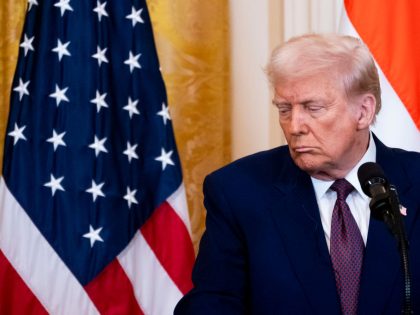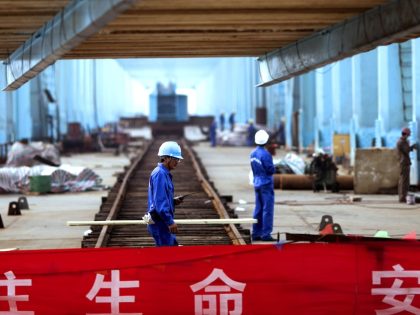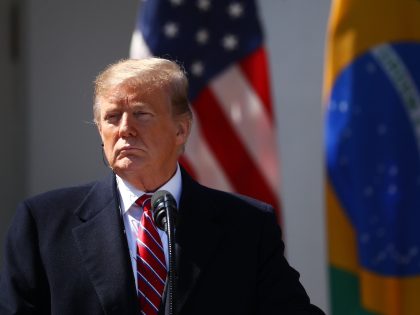
How the Media Fools Us About Trade
On trade policy, the media has a simple rule: when trade hurts the working class, it’s good for the economy. When it hurts the ruling class, it’s bad for the economy.

On trade policy, the media has a simple rule: when trade hurts the working class, it’s good for the economy. When it hurts the ruling class, it’s bad for the economy.

By clinging to American primacy through force and intimidation, Donald Trump is, ironically, undermining US global power. A saboteur trying to subvert US interests from the inside could hardly do better than what he’s accomplished through sheer incompetence.

Donald Trump’s erratic tariff rollout seems likely to deepen the world’s dependence on China and scare off investment in US reindustrialization, undermining his own administration’s stated goals. There’s no art to this incoherent, self-destructive deal.

A new Pentagon policy bars the US Defense Department from working on films that cooperate with Chinese censorship demands. It’s a new front in the economic battle with China — and it ignores the Defense Department's own influence over film content at home.

30 years ago, the Chinese government began its massacre of hundreds of student and worker activists at Tiananmen Square. The government wants to erase this history from memory, because they fear students and workers again taking to China's streets.

In Vietnam, Henry Kissinger had no principles whatsoever. There’s nothing to suggest that he had qualms about people dying or suffering.

Japan’s Liberal Democratic Party has chosen a new leader to boost its chances of retaining power in this month’s election. But the LDP is still fully committed to the militarization of Japanese foreign policy as part of Washington’s anti-China alliance.

In an interview, author China Miéville explains why Marx and Engels’s Communist Manifesto is such a remarkable work, defending the book against its detractors and arguing that it remains urgently inspiring and deeply relevant.

The Taiwan Policy Act has advanced through a Senate committee by a bipartisan vote. It’s the latest instance of the US chipping away at the “One China” policy. The result could be the very war the bill is meant to deter.

China and the US are currently locked in a dangerous rivalry, but things don’t have to be this way. We spoke to Dan Wang, the author of a new book which argues the two nations should learn from one another.

President Joe Biden has proclaimed a break with the economic orthodoxy of recent decades in favor of what he calls “Bidenomics.” But how real is Biden’s break with neoliberalism?

China’s response to the pandemic has sharply contrasted with Trump’s, with a far stronger public health response in China but little aid for the poorest. Both countries’ responses to the crisis show that a strong state doesn’t stand in contradiction with neoliberalism — rather, it’s a key element of it.

Noam Chomsky talks about US hypocrisy in stoking needless conflict with China, the unnecessarily bloody and grinding war in Afghanistan, and why the United States could easily solve climate change.

Trump’s burgeoning trade war is more about asserting US dominance in the world than helping American workers.

Taiwanese voters are going to the polls tomorrow for presidential elections as protests continue to rage in Hong Kong. But in order to understand Taiwan, we have to understand the power of China — and the looming shadow of US imperialism.

In China and beyond, liberalized markets aren't fostering democracy — they're undermining it.

China has changed under Xi Jinping, with implications for the entire world. But few outsiders understand much about Xi’s ideas or the policies that seem to flow from them.

In solidarity with the recently imprisoned former president Jair Bolsonaro, Donald Trump levied tariffs of 50 percent on Brazil. He is quickly learning that the US’s influence is weaker than he thought, thanks largely to Brazil’s growing ties with China.

For the last two years, the US and its allies have engaged in a frenzy of infrastructure projects in the Middle East, seeking to consolidate influence in the region. This bid for hegemony is coming up against a new force: Chinese capital.

Tariffs and other forms of protectionism often hurt workers — and trade can help produce good paying, sustainable jobs. But we need to build a trade policy that benefits both US workers and workers in developing countries.